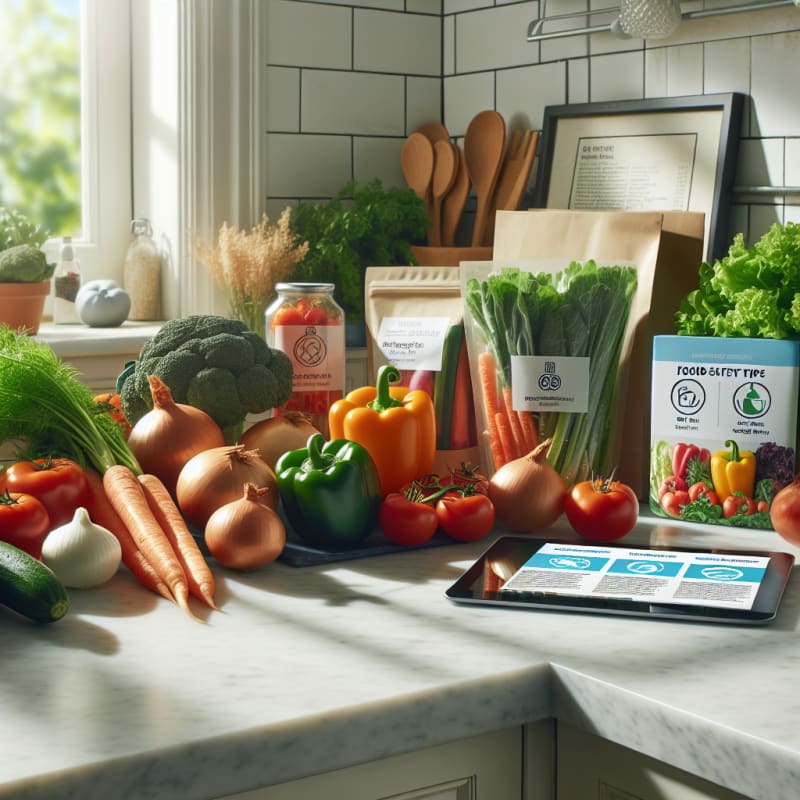Soup’s On! Navigating Food Trends, Safety, and Smart Choices in 2025
As soup enjoys a flavorful resurgence in kitchens and restaurants worldwide, consumers are increasingly conscious of what’s in their bowls. From the latest New York Times feature on soup’s comeback to evolving food safety regulations, ingredient transparency is shaping how we eat. This article explores the intersection of food trends, safety alerts, and technology—empowering you to make informed, healthy choices every time you shop or dine.
Why Soup Is Back—and What’s in Your Bowl Matters
The New York Times recently spotlighted soup’s return as a culinary staple, noting its versatility, comfort, and adaptability to modern dietary preferences (NYT, 2024). From plant-based broths to globally inspired flavors, soup is more than a meal—it’s a reflection of evolving food culture.
- Plant-based and vegan soups are surging, catering to those seeking sustainable, ethical options (FoodNavigator, 2024).
- Low-sodium and allergen-free varieties address health and sensitivity concerns, as highlighted by the FDA’s food allergy guidelines.
- Functional soups with added nutrients or probiotics are trending for their wellness benefits (PubMed, 2023).
Food Safety Alerts: Staying Ahead of Recalls and Contamination
Recent months have seen several high-profile food recalls, including soup products contaminated with undeclared allergens or foreign materials (FDA Recalls, 2024). For consumers with food allergies or sensitivities, these alerts are critical.
| Recent Recall | Date | Concern | Authority |
|---|---|---|---|
| Vegetable Soup (Brand X) | May 2024 | Undeclared celery allergen | FDA |
| Chicken Broth (Brand Y) | April 2024 | Foreign material (plastic) | USDA |
| Organic Lentil Soup (Brand Z) | March 2024 | Microbial contamination | EFSA |
To stay updated, consult official sources like the FDA (U.S.) and EFSA (Europe).
New Dietary Regulations and Ingredient Transparency
Both the FDA and EFSA are tightening regulations on food labeling, allergen disclosure, and banned ingredients. For example:
- Sesame is now a major allergen requiring clear labeling in the U.S. (FDA, 2024).
- Artificial additives like certain colorants are being phased out in Europe (EFSA, 2024).
- Front-of-pack nutrition labeling is becoming standard, helping consumers quickly assess sodium, sugar, and fat content (PubMed, 2022).
How Food Trends Impact People with Food Sensitivities and Preferences
Emerging trends—like the rise of keto, gluten-free, and plant-based soups—offer more choices but also introduce new risks of cross-contamination or mislabeling (NCBI, 2023). For those with celiac disease, food allergies, or ethical dietary needs, ingredient transparency is non-negotiable.
Empowering Smart Choices: The Role of Food Scan Genius
Apps like Food Scan Genius make it simple to scan soup labels and instantly identify allergens, additives, or non-compliant ingredients. By leveraging up-to-date regulatory data and scientific research, Food Scan Genius helps users:
- Detect hidden allergens and gluten sources
- Confirm vegan, keto, or organic status
- Stay informed about recalls and safety alerts
- Make choices aligned with health, ethical, or religious values
User Testimonial: “As someone with a sesame allergy, Food Scan Genius has been a lifesaver. I just scan my soup at the store and know instantly if it’s safe. No more guessing!” — Maria, New York
FAQs: Soup Safety, Regulations, and Smart Shopping
Frequently Asked Questions
- How can I stay updated on soup recalls and food safety alerts?
- Check the FDA and EFSA websites, or use apps like Food Scan Genius for real-time alerts.
- What are the most common soup allergens?
- Common allergens include milk, wheat (gluten), soy, celery, and sesame. Always read labels carefully and scan with Food Scan Genius if unsure.
- How do new labeling laws affect soup products?
- Manufacturers must now clearly declare major allergens and banned additives, making it easier for consumers to identify safe options.
- Are plant-based soups safer for people with allergies?
- Not always. Plant-based soups can contain allergens like soy, nuts, or gluten. Always verify ingredients and check for cross-contamination warnings.
Conclusion: Making Every Spoonful Safer and Smarter
Whether you’re embracing the soup renaissance or navigating complex dietary needs, ingredient transparency and food safety are more important than ever. By staying informed about recalls, understanding new regulations, and using tools like Food Scan Genius, you can enjoy every meal with confidence. Smart food choices today mean a healthier, safer tomorrow—for everyone.
References:
1. The New York Times: Soup’s On!
2. FDA: Food Allergies
3. EFSA: Food Additives Review
4. PubMed: Functional Foods in Soup
5. PubMed: Nutrition Labeling Impact
6. FoodNavigator: Plant-Based Trends
7. NCBI: Food Sensitivities and Trends
8. FDA: Recalls & Safety Alerts





